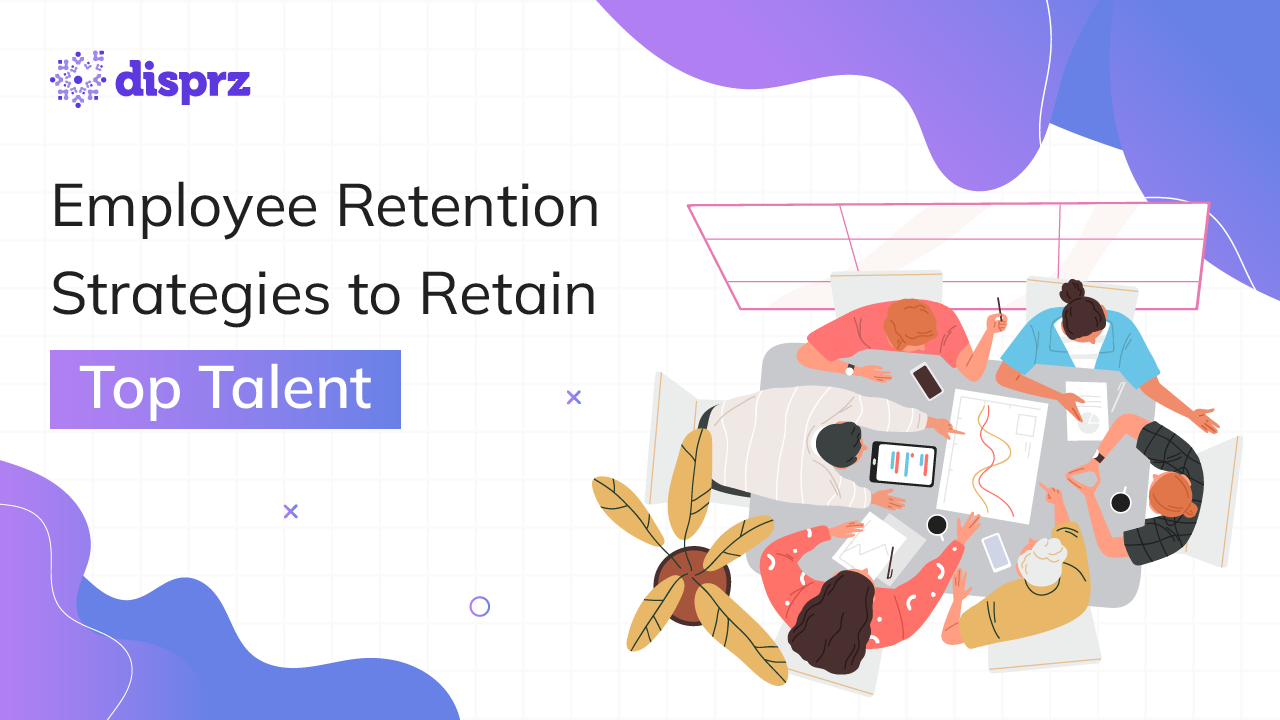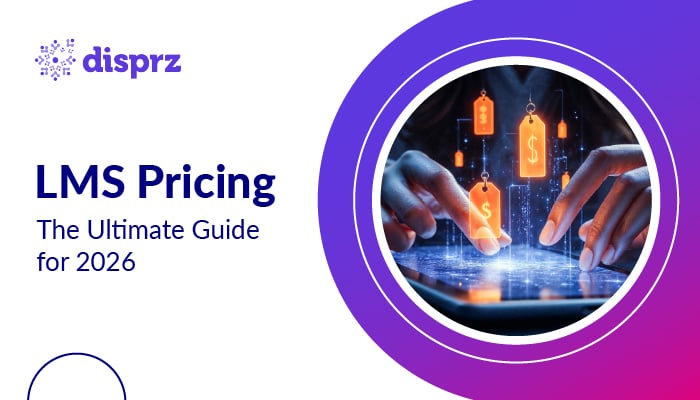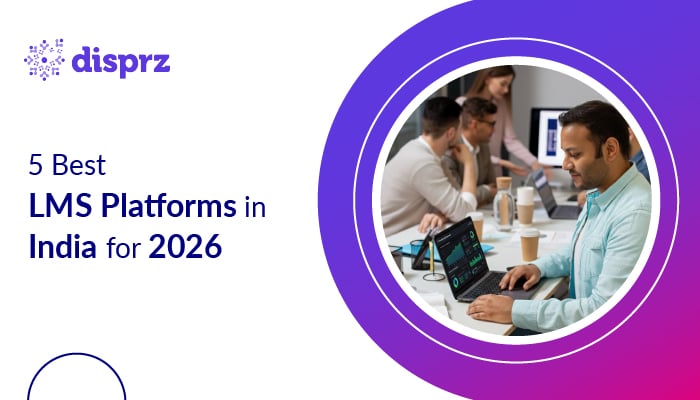In today’s competitive business landscape, organizations face a critical challenge: retaining top talent. Unfortunately, employee turnover rates have been on the rise, exacerbated by the recent phenomenon of the Great Resignation.
The Job Openings and Labor Turnover Survey shows that three to 4.5 million employees quit their jobs each month. That’s why now more than ever organizations need a solid employee retention strategy to not only keep their best workers but also to facilitate their professional development to ensure long-term loyalty.
The good news is that we’ve done all the hard work for you. We’ve compiled the best employee retention strategies that will help you provide your team with a healthy work-life balance, improve employee morale and company culture, and of course, boost employee retention rate.
Below, we’ll also walk you through the importance of employee retention, how to retain employees, and which is the best technology to drive retention and reduce turnover rate in your organization.
What is Employee Retention?
The capacity of a business to maintain long-term commitment, satisfaction, and engagement among its workforce while having a good financial impact is referred to as employee retention.
Finding a solid corporate culture and having cheerful employees are essential to this. The goal is to create a work environment that is so alluring that prospective hires want to come on board and stay for the long haul.
There's more to retaining your staff than just keeping them on the payroll.
Establishing a work culture that makes your employees feel appreciated and inspired to give their best work is important if you want to build a contented work environment.
Why is Employee Retention Important for Organizations?
Employee retention plays a crucial role in fostering organizational success for several compelling reasons. By retaining top talent and providing them with suitable upskilling and career advancement opportunities, a company demonstrates its ability to meet the aspirations of exceptional employees and make employees feel like a valuable part of the business’s success.
Implementing effective employee retention strategies is also essential due to the significant investment of time and resources involved in the hiring process. High turnover rates create additional stress and necessitate increased efforts to address the resulting challenges. Therefore, it becomes imperative to attract and retain the right talent by prioritizing their growth and development within the organization.
What Causes Employees to Leave?
Understanding why employees leave is crucial to devising effective retention strategies. The causes can vary widely, often ranging from dissatisfaction with salary and benefits to a lack of professional growth opportunities, or a workplace culture that doesn’t foster a sense of belonging.
The bottom line is that employees usually leave when they feel undervalued or underappreciated, or when there’s an absence of open and transparent communication from management.
Work-life balance also plays a pivotal role in employee satisfaction. If they consistently face long working hours with limited time for personal pursuits or if the organization doesn’t respect boundaries between personal and professional life, it can trigger their decision to leave.
Another issue we’ve seen arise is the relationship between the employee and their direct supervisor or manager. If there’s poor leadership, it’s going to lead to disengagement and attrition.
The good news is that now you’re aware of these factors that are causing so many to leave the workplace in early 2025. By identifying and addressing these factors, your organization can take proactive measures to enhance job satisfaction and curb turnover rates, consequently boosting your retention strategies.
4 Common Challenges in Employee Retention 2025
.png?width=1000&height=413&name=1%20(4).png)
1) Outdated Skills
Employees with outdated skills can feel disconnected from their roles and struggle to meet new job requirements, leading to job dissatisfaction and decreased retention.
For instance, A graphic designer at a marketing agency, skilled in traditional design but lacking proficiency in digital software, faces dissatisfaction and potential turnover as the agency shifts towards digital marketing, overwhelming the employee with evolving demands.
2) Lack of Training and Development Opportunities
Employees who feel their professional growth is stagnant may seek opportunities elsewhere. Providing ongoing training and learning experiences by leveraging an advanced AI-driven platform not only enhances their skills but also signals that the organization invests in their development, increasing loyalty.
Discover how an AI-powered LXP enhances On-the-job training.
3) Competitive Compensation Packages
Competitive salary and benefits are essential for retaining top talent. Employees often leave for higher-paying opportunities. Ensuring that your compensation packages align with industry standards can help prevent these departures.
4) Lack of Career Development Opportunities
Employees who perceive limited advancement opportunities within the organization may feel their careers have plateaued. Consequently, they often opt to switch to companies that offer internal mobility through learning and development.
8 Proven Strategies for Employee Retention in 2025
We’ve talked about the importance of employee retention, now let’s look at some impactful strategies to help you keep your top talent and keep employee satisfaction high.

Whether you’re sticking to remote work or encouraging employees to come to the office, these 8 employee retention strategies for retaining top talent are designed to help you develop a well-trained and experienced workforce.
1) Provide a Seamless Onboarding Experience
A seamless onboarding process is critical to provide an engaging new hire experience. When a new employee knows what’s expected of them and has the training to keep them on track, they’re more likely to stick around.
Enterprise Learning Experience Platforms (LXP) are a great option to create seamless onboarding. You can create an onboarding journey of 30, 60, or 90 days, and set up the system to teach the workers everything they need to know.
2) Establish Mentoring Programs to Build Future Leaders
Another of the top employee retention strategies is offering mentoring. Mentors can welcome new workers into a company and then go on to provide guidance and act as a sounding board as they get used to the organization. Having someone to listen increases employee morale and retention among new hires.
Mentoring can also be a great way to support the growth and development of your current employees, leading to a more skilled and engaged workforce. In addition, mentoring helps increase internal mobility opportunities for those already in the organization.
3) Provide Continuous Feedback
Providing continuous feedback is pivotal to improving on-the-job performance. According to a survey by Betterworks, companies that do continuous feedback perform 24% better than competitors.
Some of the areas where companies perform better include: achieving top goals, motivating the workplace, and increasing productivity. Hence it is crucial to provide continuous feedback for improving employee performance and showing them the pathway to grow within the company.
4) Implement Learning in the Flow of Work
People want to work for companies that make their employees feel valued and care about their professional growth. This is especially true for GenZ and Millennials – which is why implementing learning into the flow of work is essential.
More than half (52%) of workers said they need to learn new skills within the next year to continue their careers; 46% of employees said they are not as skilled as they need to be. SHRM – Skill development statistics
Employees can utilize an LXP learning system to provide on-the-job training to the employees. Using the AI-based recommendations of this advanced system you easily embed learning in the flow of work and improve workplace performance.
5) Offer a Competitive Salary & Benefits
Most companies today know that offering competitive pay is a talent retention strategy and (in most cases) leads to satisfied employees. But beyond an employee’s salary, there’s more that can be offered, like flexible schedules, mental health resources, and other benefits. Rather than looking only at what other organizations are paying, consider the following factors:
-
Workers’ time and work
-
What it takes to afford the cost of living in a specific location
-
Adjusted wages based on rising inflation
-
Compensation based on expertise and experience
6) Focus on Leadership
Managers and their reporters are inherently linked together. Having great leadership is the way you create a good experience for employees. It also has a major impact on whether an employee retains its workers.
Gallup notes that 50% of employees have left a position to get away from a manager. Managers should be provided training to hone their leadership skills and coach their teams to improve workplace productivity.
7) Boost Employee Engagement
When employees are disengaged, they’re doing nothing more than the bare minimum. They don’t have a reason to care how the organization is doing. Employee engagement can have a huge impact on employee retention.
When someone is disengaged, they feel less connected to their work and the organization. This can lead to a decreased sense of job satisfaction, which makes them more likely to leave.
Just over 20% of employees say they are very engaged, while disengaged workers cost the United States more than $450 billion every year in lost productivity.
You can build employee engagement by adding interesting learning elements like gamification and a social wall so employees can collaborate with their teammates and share knowledge.
Moreover, you can strike healthy competition with gaming elements like a leaderboard that can motivate employees to put in more effort for learning and improving their skills and become the best employees they can be.
8) Provide Consistent Employee Recognition
Finally, providing recognition can go a long way. It shows that you care about your team members and the things they’re doing. Offer badges and certificates to acknowledge and recognize employees who are putting sincere efforts into learning and development. This can make workers feel good and keep them from looking for new employment. Implementing regular recognition is a great way to improve employee retention.
Enhance Employee Retention with a Learning Experience Platform
Employee retention is key to success and there are many employee retention strategies you can put in place at your organization. No matter which methods you choose, you need to have the right technology in place for execution.
Look for features like AI-driven learning, real-time learning progress, and a large content repository to get the employee retention you desire. One good option is Disprz LXP, designed to create personalized learning experiences for your organization. Try the demo today and see how it works for you.
FAQs on Employee Retention Strategies
1. What are the red flags for employee retention?
Certain actions could indicate that workers are more inclined to quit your company. Be aware of these warning signs below:
-
Unmotivated work attitude
-
Frequent absences or lateness
-
Drop in work quality
-
Overwhelmed or burnt-out employees
-
Below-median compensation
2. Who is responsible for employee retention strategies?
Policies that promote employee retention are often developed by HR, along with an implementation strategy. Though they are not accountable for it, other parties like clients or coworkers may also have an impact on retention.








